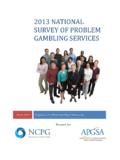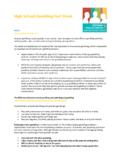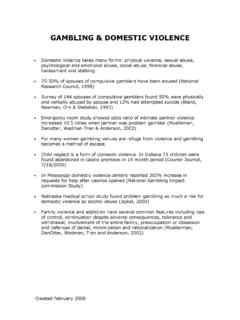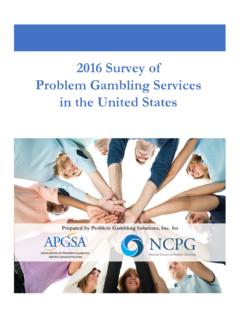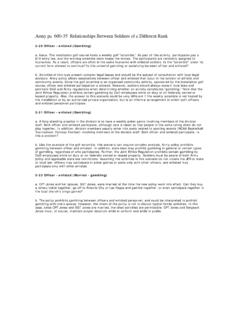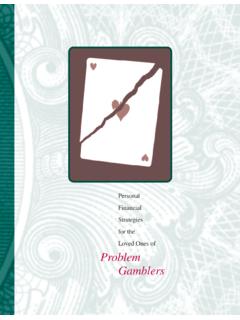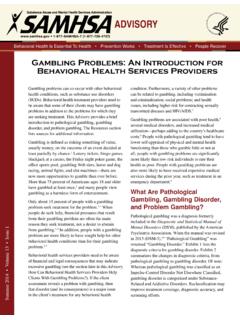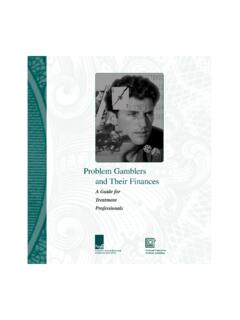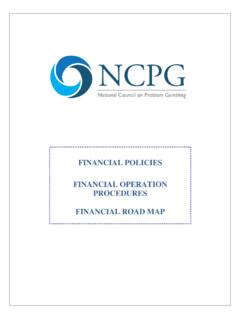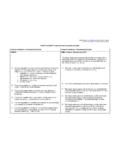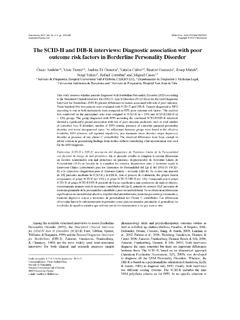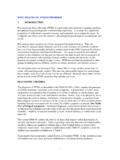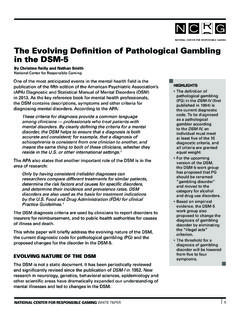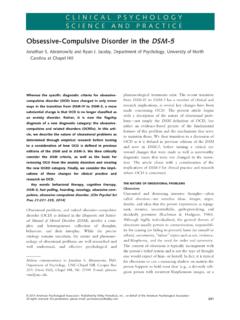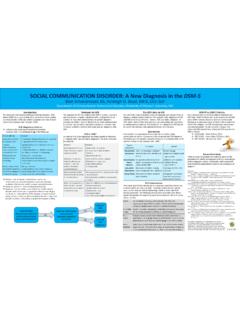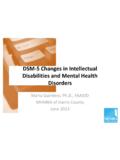Transcription of DSM5 Diagnostic Criteria: Gambling Disorder
1 DSM 5 Diagnostic criteria : Gambling Disorder * For informational purposes only * A. Persistent and recurrent problematic Gambling behavior leading to clinically significant impairment or distress, as indicated by the individual exhibiting four (or more) of the following in a 12 month period: a. Needs to gamble with increasing amounts of money in order to achieve the desired excitement. b. Is restless or irritable when attempting to cut down or stop Gambling . c. Has made repeated unsuccessful efforts to control, cut back, or stop Gambling . d. Is often preoccupied with Gambling ( , having persistent thoughts of reliving past Gambling experiences, handicapping or planning the next venture, thinking of ways to get money with which to gamble). e. Often gambles when feeling distressed ( , helpless, guilty, anxious, depressed). f. After losing money Gambling , often returns another day to get even ( chasing one s losses). g. Lies to conceal the extent of involvement with Gambling .
2 H. Has jeopardized or lost a significant relationship, job, or educational or career opportunity because of Gambling . i. Relies on others to provide money to relieve desperate financial situations caused by Gambling . B. The Gambling behavior is not better explained by a manic episode. Specify if: Episodic: Meeting Diagnostic criteria at more than one time point, with symptoms subsiding between periods of Gambling Disorder for at least several months. Persistent: Experiencing continuous symptoms, to meet Diagnostic criteria for multiple years. Specify if: In early remission: After full criteria for Gambling Disorder were previously met, none of the criteria for Gambling Disorder have been met for at least 3 months but for less than 12 months. In sustained remission: After full criteria for Gambling Disorder were previously met, none of the criteria for Gambling Disorder have been met during a period of 12 months or longer. Specify current severity: Mild: 4 5 criteria met.
3 Moderate: 6 7 criteria met. Severe: 8 9 criteria met. From the Diagnostic and Statistical Manual of Mental disorders , 5th Edition (section ).
